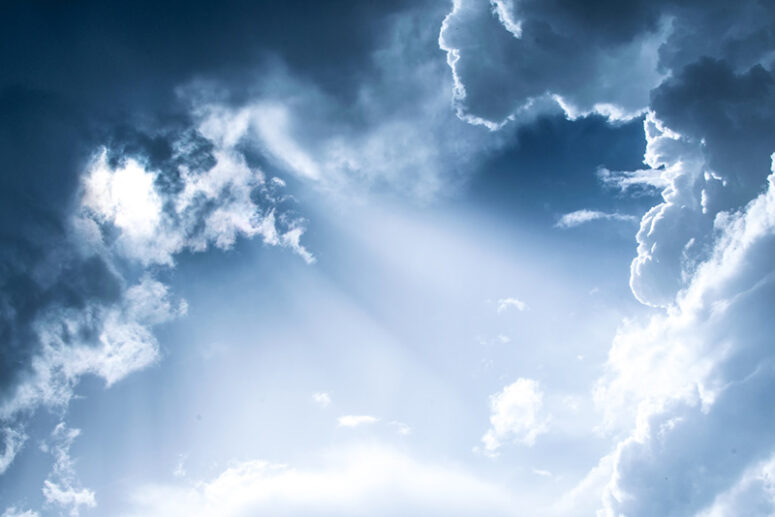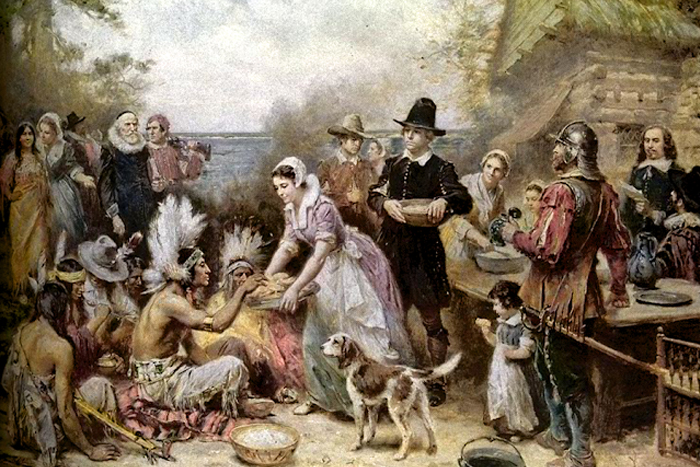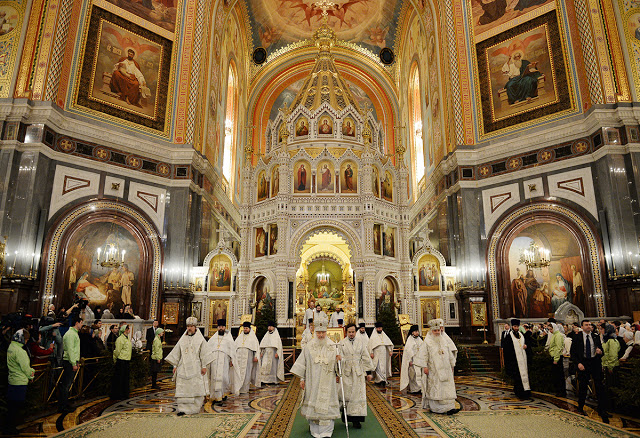
The Kingdom of God is already here, but some have not noticed.
Christians are often asked – sometimes naively, and other times derisively, “Where is your God? And where is His kingdom? Why is does God remain invisible to people, even though other world does not live by the laws of its presumed Creator?” These questions can be confusing. How can one explain to others something that can barely be described, and certainly is invisible to the eye? These are not questions that we are used to asking ourselves. We saw the light of truth in our hearts, we sensed the life-giving touch of God, and Christ and His gifts entered our spirits. The change in us evades a rational explanation. We believe intuitively, oppose to evil in ourselves, partake in the Sacraments and try to make our world a little bit better, or at least not to make it a worse place by our actions. We sense the presence of God, and know where we are going, despite our occasional mistakes. Our simplest answer could be this: we have the Lord in our hearts, and His kingdom – wherever it may be – is so good that we would want to be and stay there forever. If people do not see God, it is because they do not want to see Him and choose by their free will to live in a world without a Creator.
Yet this answer might start a new cycle of debate, especially when the party that started is not interested in finding the truth. Our faith is in many ways an exercise in experiencing the invisible by living and interacting with His greatness. The benefit of this interaction is His blessing, which is sensed as sensations of lightness, joy, freedom, freshness and love. We understand that the Kingdom of God might be like this, and possibly thousands of times better because it will free us from the influence and distractions of the material world.
Many different peoples and cultures in history have expected the end of the world. The Book of Revelation in the Christian bible makes literal and symbolic predictions of the events that will happen in the last times before and during the second coming of Christ. At all times, this book inspired many to link its predictions with the present. The world had been in fearful expectation of a global crisis when suddenly a new plague hit and disrupted our relatively trouble-free existence in this world. The pandemic brought drastic changes to the global economy, the relationship between the individual and the state and the people themselves. Are we nearing the end of times? Is the Kingdom of God coming soon? Maybe. Or maybe not.
John the Baptist began to preach to the people with the words “Repent; for the Kingdom of God is at hand” (Matthew 3:2). When he said this two thousand years ago, the Kingdom was at hand. But where is it now? What was he talking about in the first place? The prophet was telling the people about a Kingdom that Christ was about to reveal to them. So when the Saviour came to preach, he said to the people words that they could barely understand: “The Kingdom of God is now within us.” (Luke 17:21). I am an ordinary man, less than two metres tall. How can the Kingdom of God exist in me? Apostle Paul explains, “The Kingdom of God is not food and drink, but righteousness and peace and joy in the Holy Spirit.” (Romans 14:17). It is not material, but rather a state of mind. As Christ had suggested, it will not notice its coming. It will come at its own time and day for each of us. As Apostle Luke taught, “Since that time, the good news of the kingdom of God is being preached, and everyone is forcing their way into it” Luke 16:16). For two thousand years, every human from every generation has had the possibility of entering the Kingdom, and we have it as well.
The Kingdom of God enters the heart of each person as he repents and bewails his sins, cleanses himself from his passions, and accepts into himself the grace of the Holy Spirit and merciful God. As Christ told his disciples just before His Transfiguration, “Some who are standing here will not taste death before they see that the kingdom of God has come with power.” (Mark 9:1). In later years, the yearning for the Kingdom of God gave rise to the movement of hesichasm among Christians of many eras and centuries, many of whom saw it coming for themselves.
God knows no boundaries of time, and He will hear our call and come to us when we call. The grace that is filling our hearts as we pray, partake in the sacraments and give alms gives us a foretaste of the invisible and coveted Kingdom of Heaven. We pray that it becomes ever more visible to us with every day of our worldly life, and reveal to us its fill beauty and grace at the end of our earthly lives.
Translated by The Catalogue of Good Deeds
Source: https://pravlife.org/ru/content/kogda-pridet-carstvo-bozhie




